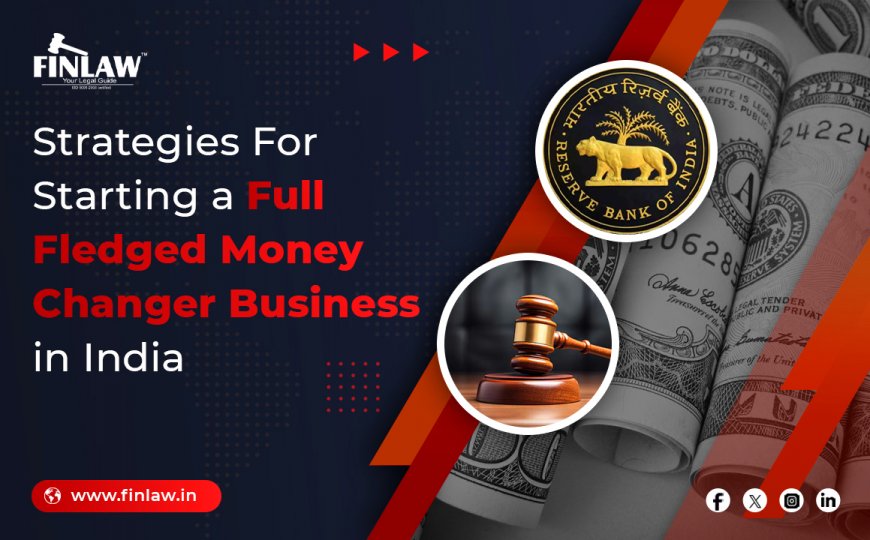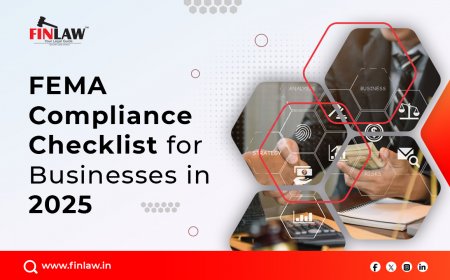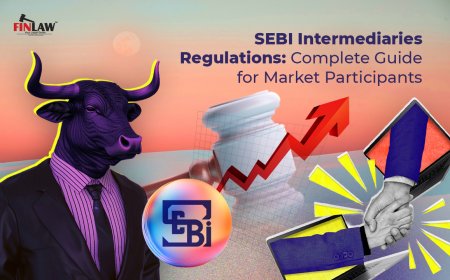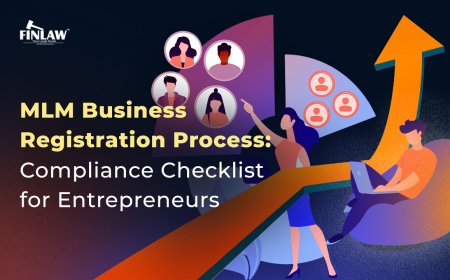Strategies For Starting a Full-Fledged Money Changer Business in India
Learn how to start a full-fledged money changer business in India with expert strategies, legal requirements, and tips for success.

Starting a full fledged money changer business in India can be a lucrative venture, given the country's growing international travel and trade. However, it requires meticulous planning, adherence to regulatory norms, and a clear understanding of the foreign exchange market. This comprehensive guide will walk you through the essential steps and strategies to establish a successful money changer business in India.
Understanding the Full Fledged Money Changer Business
A Full Fledged Money Changer (FFMC) is an entity authorized by the Reserve Bank of India (RBI) to deal in foreign exchange. FFMCs are permitted to purchase foreign exchange from residents and non-residents and sell it for private and business travel purposes. They play a crucial role in facilitating currency exchange services, contributing to the ease of international transactions for individuals and businesses alike.
Legal Framework and Regulatory Requirements
A full-fledged money changer business in India is governed by the Foreign Exchange Management Act (FEMA), 1999. The RBI, under Section 10 of FEMA, grants licenses to entities to operate as FFMCs. Adherence to RBI guidelines is mandatory to ensure compliance and avoid legal complications.
Eligibility Criteria for Obtaining an FFMC License
To be eligible for an FFMC license, the following criteria must be met:
-
Incorporation: The applicant must be a company registered under the Companies Act, 2013.
-
Net Owned Funds (NOF):
-
For a single-branch FFMC, a minimum NOF of ₹25 lakh is required.
-
For multiple branches, the minimum NOF should be ₹50 lakh.
-
Object Clause in Memorandum of Association (MOA): The company's MOA must explicitly include provisions for undertaking money-changing activities.
Required Documentation
Applicants must furnish the following documents:
-
Certificate of Incorporation: Proof of the company's registration.
-
Memorandum and Articles of Association: Documents outlining the company's objectives and regulations.
-
Audited Financial Statements: Balance sheets and profit & loss accounts for the past three years.
-
Net Owned Funds Certificate: A certificate from a statutory auditor confirming the NOF.
-
Banker's Report: A confidential report from the company's primary banker.
-
Director's Details: Information on the company's directors, including background and experience.
Application Procedure for FFMC License
The process to obtain an FFMC license involves several steps:
-
Preparation of Application: Compile the application in the prescribed format, including all necessary documents such as the Certificate of Incorporation, MOA, Articles of Association, audited financial statements, and a confidential report from the applicant's banker.
-
Submission to RBI: Submit the application to the regional office of the RBI under whose jurisdiction the registered office of the applicant falls.
-
RBI Scrutiny and Approval: The RBI will review the application, and upon satisfaction, grant the FFMC license.
Post Licensing Compliance
After obtaining the FFMC license, certain compliances must be adhered to:
-
Commencement of Business: The money-changing business must commence within six months from the date of license issuance.
-
Adherence to RBI Guidelines: Strict compliance with RBI's guidelines on Anti-Money Laundering (AML), Combating the Financing of Terrorism (CFT), and Know Your Customer (KYC) norms is mandatory.
-
Record Maintenance: Keep detailed records of all transactions, including customer identification and the purpose of the exchange.
-
Regular Reporting: Maintain and submit periodic reports and returns as prescribed by the RBI.
-
Renewal: Apply for license renewal before the expiration of the current license, ensuring all compliance requirements are up to date.
Strategic Planning for a Successful Money Changer Business
-
Market Research and Location Analysis:
-
Target Audience Identification: Identify potential customers such as international travelers, tourists, and businesses engaged in import-export activities.
-
Strategic Location Selection: Choose locations with high footfall of international travelers, such as airports, tourist spots, and business districts.
-
Capital Investment and Financial Planning:
-
Initial Capital Allocation: Ensure sufficient capital to meet the NOF requirements and cover operational expenses.
-
Financial Projections: Develop detailed financial projections to assess profitability and plan for future growth.
-
Accurate Record Keeping: Maintain accurate records of all transactions, including customer details, exchange rates, and commissions.
-
Tax Compliance: Comply with all applicable tax regulations, including income tax, GST, and service tax.
-
Financial Reporting: Prepare regular financial reports to track profitability, identify areas for improvement, and make informed business decisions.
-
Infrastructure and Technology Setup:
-
Choose a Location (Office Setup): Select a strategic location with high footfall, such as tourist areas, business districts, or near international airports.
-
Secure Premises: Rent or lease suitable premises and establish a professional and secure office environment that meets RBI guidelines for security and customer service.
-
Hire Qualified Staff: Recruit experienced and trustworthy staff with knowledge of foreign exchange regulations and excellent customer service skills.
-
Technology Integration (Equip Your Office): Implement robust software systems for transaction processing, record-keeping, and compliance management. Invest in the necessary equipment, including:
-
Secure currency vaults and safes
-
Currency counting and sorting machines
-
Reliable internet connectivity
-
CCTV surveillance system
-
Customer service desks
-
Human Resource Management:
-
Skilled Personnel Recruitment: Hire qualified staff with expertise in foreign exchange operations and customer service.
-
Training and Development: Provide regular training to keep staff updated on regulatory changes and industry best practices.
-
Marketing and Customer Acquisition:
-
Brand Development: Create a strong brand identity that instills trust and reliability among customers.
-
Digital Presence: Develop an informative website and leverage social media platforms to reach a wider audience.
-
Partnerships and Alliances: Collaborate with travel agencies, hotels, and tour operators to expand your customer base.
-
Competitive Pricing and Service Differentiation:
-
Market Rate Analysis: Regularly monitor market exchange rates to offer competitive pricing.
-
Value-Added Services: Provide additional services such as travel insurance, remittance facilities, and loyalty programs to attract and retain customers.
-
Continuous Improvement:
-
Stay Updated on Regulations: Keep abreast of any changes in RBI regulations and FEMA guidelines.
-
Market Research: Conduct regular market research to understand customer needs and preferences.
-
Customer Feedback: Actively solicit and incorporate customer feedback to improve services.
-
Technology Upgrades: Continuously upgrade technology to enhance efficiency and customer experience.
On-going Risk Management and Compliance for Fledged Money Changer Business
-
Regulatory Compliance: Stay updated with RBI regulations and ensure timely compliance to avoid penalties.
-
Risk Assessment: Regularly assess operational risks and implement measures to mitigate them.
-
Audit and Monitoring: Conduct internal audits and monitor transactions to detect and prevent fraudulent activities.
Leveraging Technology for Operational Efficiency
-
Digital Transactions: Consider developing an online platform or mobile application for customers to facilitate online currency exchange bookings, real-time exchange rates, transaction history, payments, and other services to enhance customer convenience.
-
Payment Gateways: Integrate with secure payment gateways to facilitate online and mobile transactions.
-
CRM Software: Utilize customer relationship management (CRM) software to manage customer data, track transactions, and improve customer service.
-
Data Analytics: Utilize data analytics to understand customer behavior, optimize services, and drive business growth.
Conclusion
Establishing a full-fledged money changer business in India requires a strategic approach, compliance with regulatory norms, and a focus on customer satisfaction. By following the outlined steps and continuously adapting to market dynamics, you can build a successful and compliant money-changing enterprise.
Moreover, leveraging technology, offering value-added services, and maintaining competitive pricing can help differentiate your business and attract a loyal customer base. Regularly updating yourself with RBI regulations and global market trends will ensure long-term sustainability and growth.
With meticulous planning and a customer-centric approach, your money changer business can thrive in India's dynamic financial landscape, meeting the increasing demands of both individual and corporate clients.
What's Your Reaction?



















